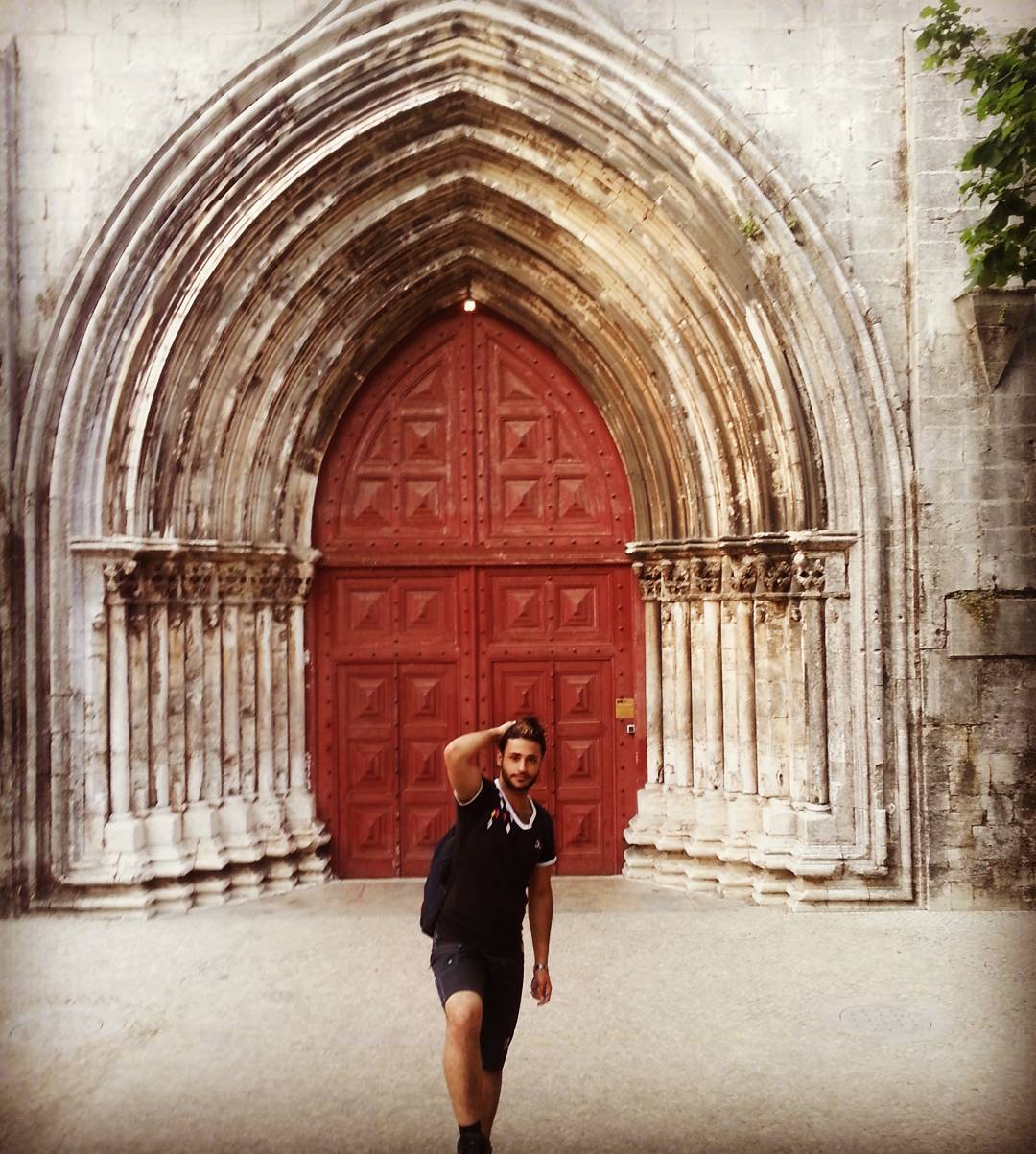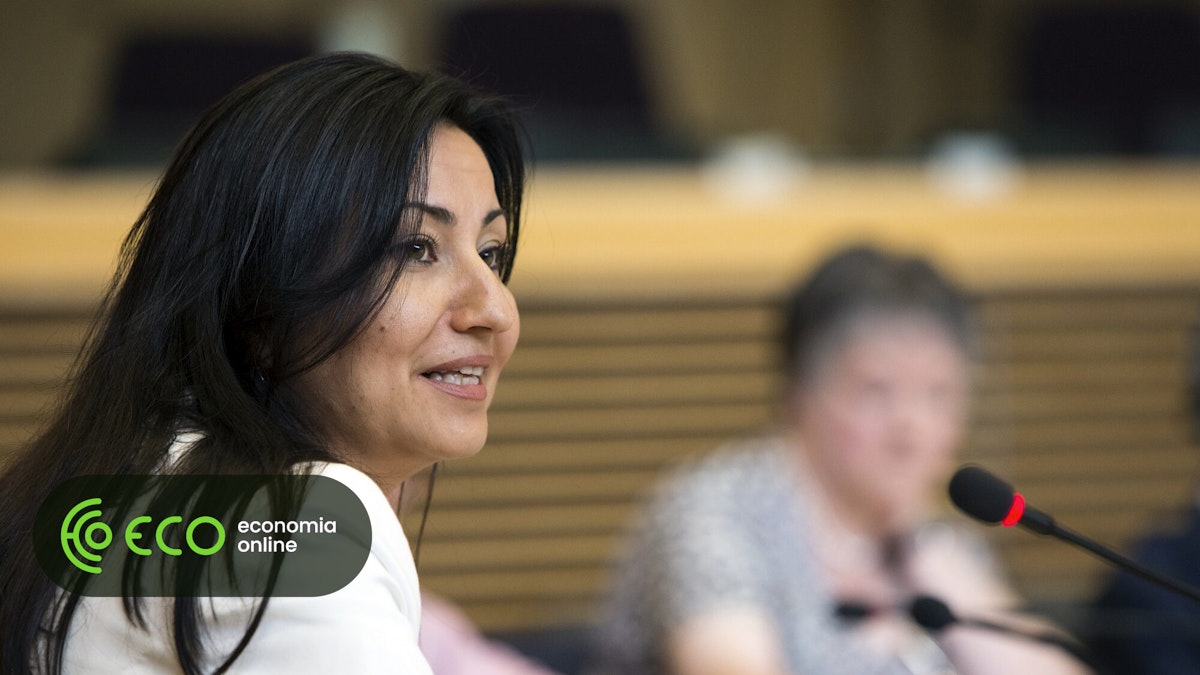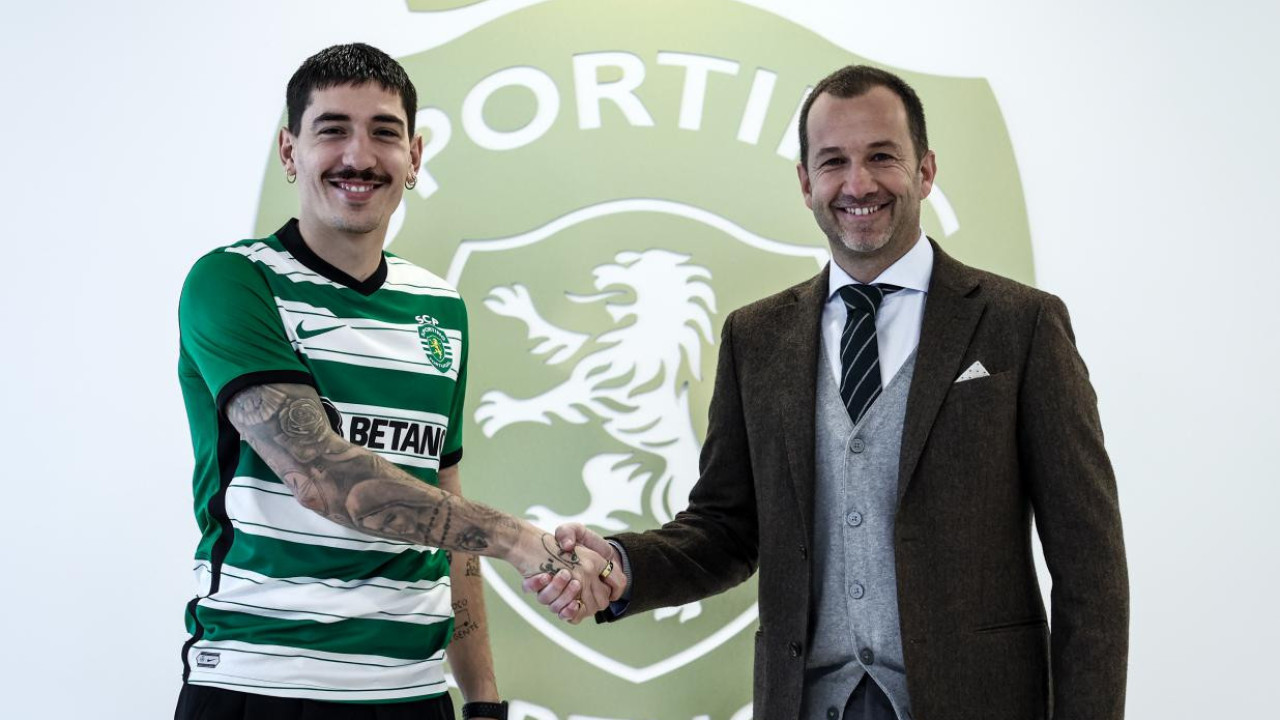Ahmad’s terrible journey to reach Portugal – NiT
Elderly, blind, racism and now refugees. This was the theme of the fourth episode of the second season of “Tabu”, Bruno Nogueira’s program broadcast this Saturday, January 28, on SIC. One of the participants was Ahmad Omar, a 27-year-old Syrian who has been in Portugal since 2016. The production of the format came to him through Amnesty International, since Omar is a volunteer in the organization’s projects.
“It was great. I don’t know if I was good or not, but I liked it”, she tells NiT in English, when we ask her about the experience of participating in the program, before the episode aired. “I didn’t know Bruno, because I don’t know many things about the media here in Portugal, I didn’t know actors or singers, but yes, he’s a great person.”
Despite being an episode about refugees, Ahmad Omar was never given that official status. He was 18 when, in 2014, he decided to leave his country alone. He wasn’t the only one. He knew countless people who lived in Syria, heading to Europe and other countries, in a time when the territory was increasingly entering a large-scale armed conflict, opposing the government regime to rebel militias and the self-proclaimed Islamic State.
“I wanted to leave because, at that time, it was really, really bad. There were lots of problems going on. The war was just beginning. And it was slow. It started with people protesting in the street, a year later they decided to kill them, a year later people experimented with having weapons… It didn’t all happen very quickly, it was one step at a time. But in 2014 it was really bad and I made the decision. My family wasn’t anxious, but I was convincing [risos] and they told me ‘OK’”, he explains to NiT.
In previous years, he had changed schools several times in Damascus, the Syrian capital, in an attempt to escape the areas of the city most affected by bombing. But the apparently random attacks were constant. The sound of bombs became normal. “If you didn’t hear a bomb, something went wrong. It never stopped. Wherever they went there were always bombs.”
Ahmad Omar saw buildings fall in front of him and watched his reality crumble. He doesn’t know what happened to several people who met and lost a cousin exactly his age, who lived in another city.
“I didn’t want to go to Europe. I just wanted to get out of Syria. Any other place would be better. Turkey was the best option. There are good relations between the two countries. You don’t need a visa to go there”, he explains, about the decision to move to one of the neighboring countries, which shares some cultural identity with his nation. Only it was, somehow, the mistake.
Ahmad Omar in Greece.
“Everything I had in mind about Turkey was different, actually. People on social media used to say that if you were Syrian and went into the emotional turmoil to study for free, you didn’t have to pay public university fees. And when I got there it was totally different. You had to pay, then they told you that you had to speak the language. My options were very limited, because my English at the time wasn’t that good either.”
What’s more, on the stopover flight he made in Lebanon, between Syria and Turkey, his suitcase was lost. He had all his belongings there. All he had left was his passport, which he had in his pocket, and some money.
“When I arrived in Turkey I had nothing but 600 dollars. I had to buy clothes, pay rent, transport,” she explains. I didn’t know anyone in that country. She spent three very difficult months in Istanbul, the most European of Turkish cities, where she tried to find work. “But because of the language it was difficult.”
Three months later, I was on the verge of giving up and going home. “I had no money. My family could support me for a few months, but I couldn’t keep sending money. My option was to go back, but then, when I was walking down the street, I saw an advertisement on a door for a job at the supermarket.”
The owner of this supermarket spoke English and wanted to practice the language more. “I only stayed with the job because of that. [risos].” He ended up staying another year, where he managed to stabilize his situation a little. I met several Turks and other Syrians who fled the war to Turkey. He didn’t usually stay for long. Istanbul was an intermediate stop on the journey to Europe.
Discovering that many used illegal organized networks that transported refugees and migrants to Europe in boats across the Mediterranean. He was given several phone numbers. Some never answered, others assured him they stayed in touch but never received any callbacks.
“Until one day someone envies me someone’s number, saying that it was reliable. I didn’t trust it, but I just wanted out. And that one gave me the number of another person, who told me to go to the place.” It was a process with several intermediaries. “There were many people. But who was ahead? I have no idea.”
It was in Izmir, around 480 kilometers from Istanbul, that he then went to catch a boat. He didn’t go alone — with Ahmad there were two Syrian friends he had met in Turkey. It all happened in February 2016, when he was 20 years old. What was supposed to be a short half-hour trip between the Izmir area and a Greek island ended up taking five hours.
He had to pay between €600 and €700 to go on that trip that almost turned out to be tragic, like so many others that happened — and continue to happen — in the Mediterranean. “It was very difficult. Because of the waves, which kept pushing us back. It was raining and we left at midnight. We reached the island at five in the morning. And once or twice the boat’s engine fell into the water, the people closest to it had to pick it up and put it back in.” It was a “one-way boat” made of plastic. “It was full of people, overcrowded.”
Having arrived in Greece and the territory of the European Union, the first step has been taken. But more difficult times await you. On that island, they handed him a document that allowed him to travel around Greece but only to get to the border and leave. I couldn’t stay in the country. He bought a ticket and took a boat to Athens, the capital.
It was there that he heard the rumors that they were going to close the borders. “Because of Germany, which was supposedly unwilling to take in more refugees and migrants.” Ahmad Omar and his friends, among many others who were on an indifferent journey, took buses to the north of Greece, towards the borders with Albania, North Macedonia and Bulgaria.
The police stopped several buses during a trip. They stayed for days at a bus station halfway. They were people in desperate situations, with nothing, with whom the authorities were unable to connect. The migratory flow had increased significantly. They ended up making it to the border — which closed on the very day they arrived there.
“It was raining, we spent the night there because it was already midnight when we arrived. There was nothing but farming land. It was very big and everything was empty, there were not even trees.” However, there was a train station nearby, where volunteers from some associations and non-governmental organizations were also present. One of those people gave Ahmad Omar and his two friends a tent so that they could spend the night better, taking into account the rain, the cold and the lack of cover. They ended up offering the tent to a woman traveling alone with three children.
In the middle, I still managed to keep a broken tent, which only mitigated the problem, since the rain entered underneath and wet everything. They spent five days in these conditions. They ate what the associations gave them: an apple and a small sandwich a day, in addition to tea. Eventually, on the fifth day, a prefabricated UN kiosk was installed in the area.
The United Nations, which realized that it needed to act quickly in that area of Europe, was starting a relocation program for migrants. Ahmad Omar remembers hearing people who were there defending that it was all a hoax, that they wanted the migrants to apply to go to European countries but that in fact they would be returned to the territories of origin. Doubt crept in among everyone on Greece’s northern border. “But I had already crossed the sea, I had almost killed, so I thought: what the hell. It can’t get any worse.”
They were then sent to another UN post, set up in one of the cities in northern Greece, but which was not right next to the border. They had to be there the next morning. “There were people arriving by taxi at the border. We took one of those taxis and said: ‘We don’t have any money, can we take us to that city?’ It was the closest city to the border. I only had €50 or so.”

A month after arriving in Lisbon.
When they got there, they did individual interviews and each one was able to choose six European countries to apply. Ahmad Omar confesses that he selected Portugal by accident — the Syrian didn’t even know it was a European country. “In history I studied that Portugal had discovered Brazil and so on, but I had never seen where the country was on a map. That’s why I thought that Portugal was on Brazil’s side.”
While waiting for official responses from the countries, the three friends and many other refugees and migrants were installed in hotels in Athens, at a time when there were almost no tourists in the city — the harmful effects of the economic crisis were still being felt, which also affected tourism no country.
He was called three months later, in May 2016. Portugal had accepted the welcoming Ahmad Omar. Just had to do some medical tests before boarding a plane. Although she achieved the much-desired goal of becoming legal in Europe, the process remains not exactly easy — even today it isn’t.
Arriving in Portugal, he spent two months at a reception center at Quinta das Conchas, in Lisbon. Then, under the UN program, he was installed in an apartment with a roommate. They could stay there for 18 months. Two months later, Ahmad Omar already had a job arranged in Portugal — nowadays he is a quality analyst for a large company that collaborates with multinationals in remote work.
There, he struggled with the problem of housing in Lisbon, since he did not have a high income. “I rented a house, but I couldn’t pay the rent. So I said to the company: if you can help with accommodation, that would be great, so I can continue. My life has been so fucked up. I don’t want to suffer anymore. They had a program where they helped you with accommodation, paying part, anxiously a little of your salary.”
Since then, he has moved house several times and is now a tenant in a room in the Alvalade area. He earns a little more than minimum wage. “It’s not great, but it’s not bad either. It’s good.” He stresses, however, that Portugal is “great” and that the people are “welcoming”. When there were less good comments about refugees or migrants, it didn’t matter much either. “People in general tend to say refugees are coming and stealing jobs, but I work in Arabic so… [risos]”.
His family continues to live in Damascus, at a time when the situation is calmer and more stable — even if, in economic terms, living in Syria is a nightmare. Ahmad Omar says that his country currently has the worst salary in the world, but food prices, for example, are identical or even higher than in Portugal. “It is very difficult to buy food.” After everything he’s been through, he says he won’t be coming home anytime soon. “I can go, but I don’t know if I can come back.”



